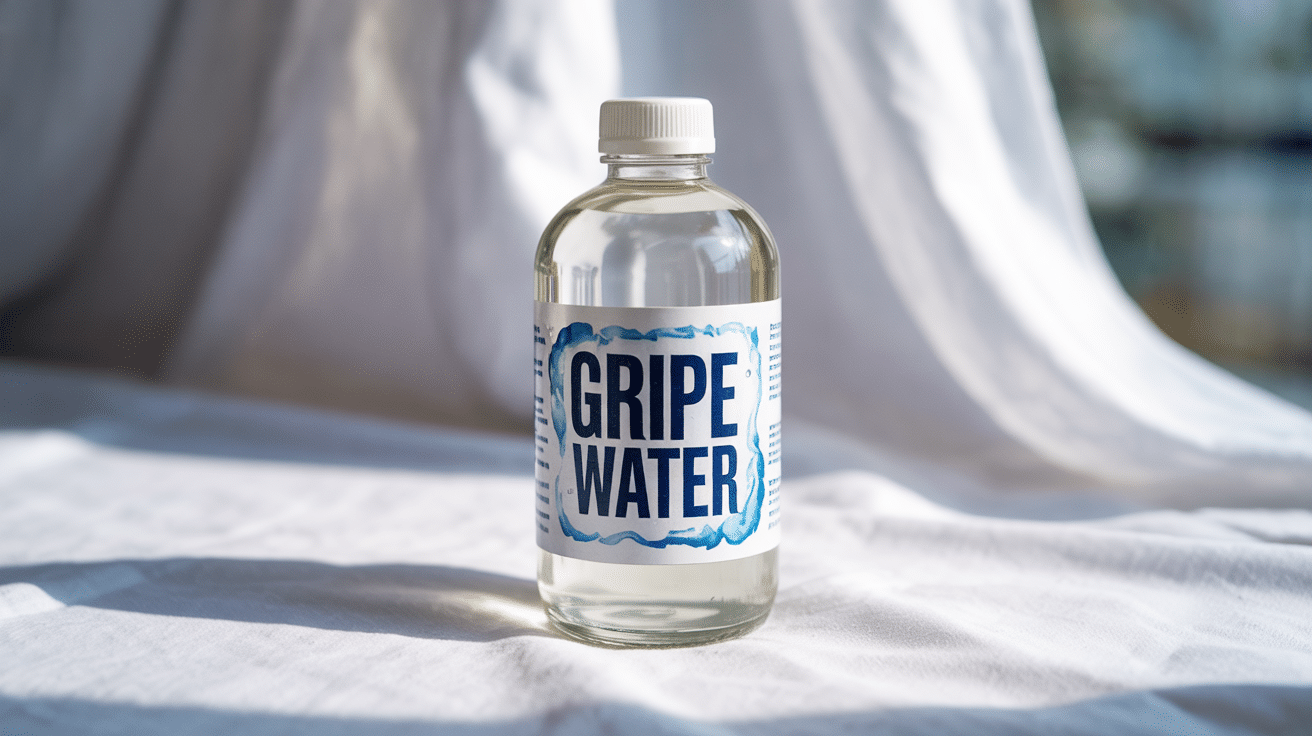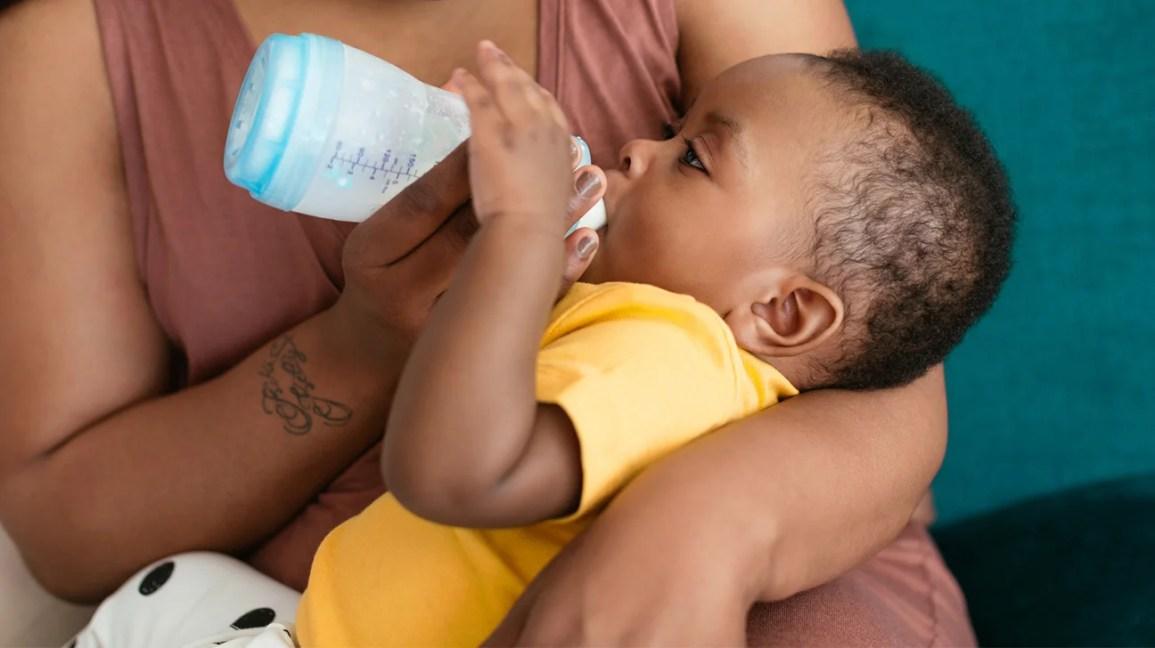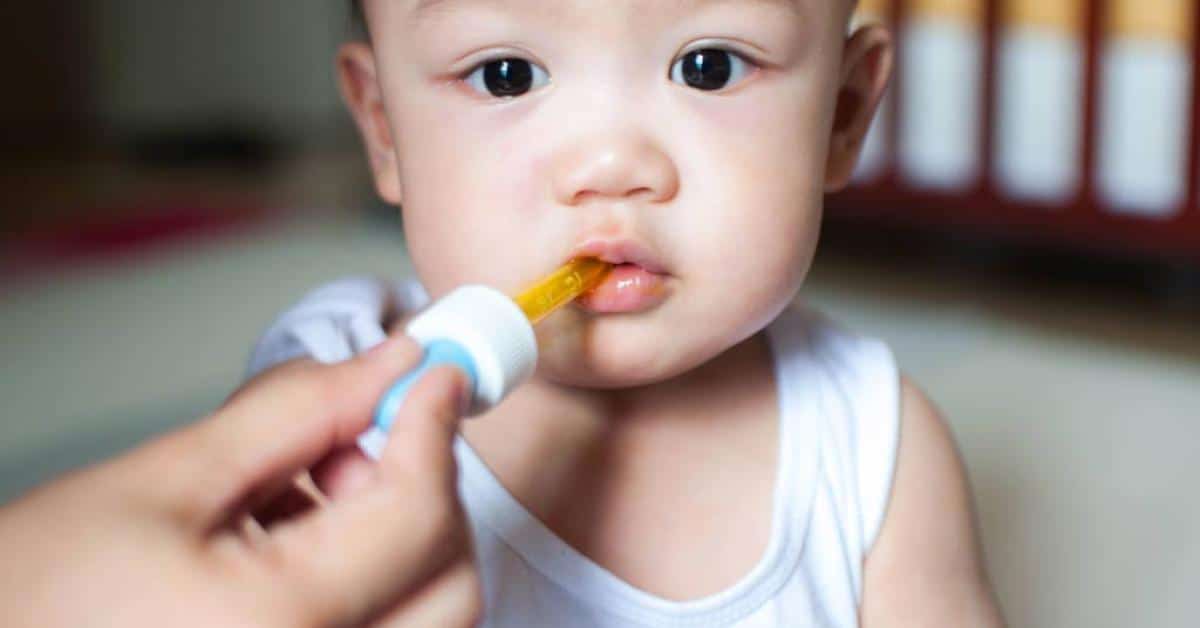
Those tiny cries at 2 AM can feel earth-shattering when nothing seems to soothe your newborn’s discomfort.
Gripe water, a time-honored remedy from the 1850s, offers parents a potential solution during these trying moments.
This gentle herbal supplement typically contains ingredients like fennel, ginger, or chamomile that may help soothe digestive discomfort in babies.
Parents often turn to gripe water when their children exhibit excessive crying, gas, hiccups, and fussiness that seem resistant to other calming methods.
Did you know? The original gripe water formula contained alcohol, but modern versions are alcohol-free and safer for infants!
Understanding the correct gripe water dosage for newborns is crucial for safety and effectiveness.
Most pediatricians recommend waiting until your baby is at least 2-4 weeks old before introducing gripe water and always following package instructions precisely to avoid potential side effects.
What Is Gripe Water?
Gripe water, a time-tested remedy originating in 1850s England, soothes fussy babies suffering from gastrointestinal discomfort.
This gentle solution targets colic symptoms, gas, hiccups, and general fussiness that many newborns experience.
While traditional formulations once contained alcohol, modern commercial versions are alcohol-free and typically include water, sodium bicarbonate, and soothing herbs like fennel, ginger, chamomile, or dill, sometimes with added sweeteners.
Natural homemade alternatives often rely on herbs with known digestive benefits. Interestingly, the term “gripe” derives from old English, meaning “to seize or grasp.”
This refers to the gripping pain infants experience during colic episodes, making this remedy aptly named for its primary purpose.
Gripe Water Safety for Newborns

Pediatricians generally recommend waiting until babies are at least 1 month old before using gripe water, as newborns have immature digestive systems.
Some formulations are labeled for infants as young as 2 weeks, but consulting your doctor first is essential.
Most pediatricians consider gripe water a supplement rather than a necessity. Many recommend trying other soothing techniques first, like proper burping, gentle tummy massage, or bicycle leg movements.
The FDA doesn’t regulate gripe water as a medication but as a dietary supplement, meaning ingredients and quality can vary significantly between brands.
Safety concerns include potential allergens, added sugars, and alcohol in some formulations. When choosing gripe water, look for products with simple ingredients, avoid those containing alcohol, and always check with your pediatrician before giving any supplement to your newborn.
Understanding Gripe Water Dosage for Newborns
| ASPECT | DETAILS |
|---|---|
| Typical Dosage | 0.5 ml to 2 ml for newborns under one month |
| Frequency | 1 to 6 times daily as needed, with at least a 30-minute gap between doses |
| Weight-Based Dosing | Around 0.5ml per 10 lbs of body weight |
| Label Check | Always follow dosage instructions on the specific product label |
| How to Give | Use the included dropper or syringe |
| Best Administration Position | Semi-upright; slowly dispense along the inside of the baby’s cheek to prevent choking |
| Important Note | Never exceed the recommended dose |
| Doctor Consultation | Always consult a pediatrician before using, especially for babies under two weeks old. |
| Safety | Generally considered safe, but ingredients and concentration vary by product. |
While generally considered safe, individual products vary in ingredients and concentration.
When Can You Start Giving Gripe Water to Your Baby?

Most gripe water products can be given to babies once they are 2 weeks old, but always check the specific product label for age recommendations. Some formulations are only suitable for babies 1 month or older.
Signs Your Baby May Benefit from Gripe Water
- Excessive crying in the evenings: This may be a sign of colic, and gripe water is often used to help soothe it.
- Frequent hiccups that cause distress: Gripe water might offer relief if hiccups seem to bother your baby.
- Gassiness and discomfort: If your baby squirms, looks uncomfortable, or pulls their legs toward their chest, they may be experiencing gas pains.
- Fussiness during or after feeding: Digestive discomfort around feeding times may indicate gripe water could help.
- Important note: Always consult your pediatrician before introducing any supplement, including gripe water, to your baby’s routine.
Gripe Water Relief Timeline
Gripe water typically begins working within 5-15 minutes after administration. Most parents notice their baby’s discomfort easing as the herbal ingredients help relax the digestive system and reduce gas bubbles.
The effects of gripe water generally last for 30 minutes to 4 hours, depending on the severity of the baby’s discomfort and the specific formula used. Some premium brands with higher concentrations of active ingredients may provide longer-lasting relief.
Gripe water can be re-administered after 4-6 hours if symptoms persist, but always follow the specific product’s dosage instructions.
Most manufacturers recommend not exceeding 4-6 doses within 24 hours. If your baby continues to show signs of discomfort after multiple doses, consulting a pediatrician is advisable, as it might indicate an underlying issue requiring medical attention.
Potential Side Effects and Precautions

Understanding potential adverse reactions and taking proper precautions can help you safely incorporate supplements into your wellness routine. Being informed allows you to make better decisions about what you put in your body.
1. Common Side Effects
Even beneficial supplements may cause allergic reactions, which can manifest as skin rashes, itching, or respiratory issues. These symptoms typically appear shortly after consumption and require immediate attention.
Many users initially experience digestive discomfort, particularly constipation. This usually subsides as their bodies adjust to the new regimen.
Certain supplements, especially those that affect blood pressure or contain stimulants, may cause headaches or dizziness. Monitoring your body’s response during the first week is crucial.
2. Ingredients to Watch out For
Carefully examine labels for hidden alcohol content, which may interfere with medications or recovery programs. Many supplements contain surprising amounts of sugar, potentially impacting blood glucose levels.
Artificial flavorings, often disguised under vague terms like “natural flavors, ” might trigger sensitivities in susceptible individuals.
Certain preservatives, like sulfites or benzoates, can cause reactions in sensitive people. These ingredients extend shelf life but may have unwanted side effects.
3. What to Do in Adverse Reactions
Discontinue use immediately if you experience unusual symptoms. Document all reactions with photos and notes before seeking medical attention, bringing the product packaging to your healthcare provider.
To report adverse effects, contact the manufacturer with your batch number. This will help identify potential quality control issues. After consulting with a healthcare professional about your specific sensitivities, consider alternative formulations that exclude problematic ingredients.
Tips for Giving Gripe Water to Newborns
Gripe water can be offered 30 minutes after feeding when colic symptoms appear or before bedtime to help settle fussy babies.
Always administer with the dropper provided while holding the baby in a semi-upright position to prevent choking.
Never mix gripe water with formula or breast milk. This dilutes both substances and makes it impossible to control the exact dose your baby receives. Always administer separately.
Store opened gripe water in the refrigerator and use it within the timeframe specified on the packaging (typically 2-4 weeks).
Discard any unused portion after this period. Always check the expiration date before use and inspect for changes in color, smell, or consistency that might indicate spoilage.
Special tip: Warming the dropper slightly under warm water before administration can make the experience more comfortable for your sensitive newborn.
Alternatives to Gripe Water
When babies experience colic or gas discomfort, many parents seek gentle solutions. While gripe water is popular, several pediatrician-approved alternatives exist.
- Gentle tummy massages in clockwise motions can help release trapped gas.
- Proper burping techniques—supporting the baby’s head while gently patting their back—often provide immediate relief.
- Probiotics specifically formulated for infants may help balance gut bacteria, potentially reducing colic symptoms. Many pediatricians recommend specific strains like Lactobacillus reuteri.
- Heat therapy using warm (not hot) towels on the baby’s tummy and bicycle leg exercises can also ease discomfort.
- For feeding-related gas, consider evaluating bottle nipple flow or nursing techniques.
Always consult your pediatrician before trying new remedies, especially for persistent symptoms that might indicate underlying conditions requiring medical attention.
Summing It Up
Proper gripe water dosage is crucial for newborn safety and effectiveness. Each brand’s formulation differs significantly, so carefully follow the specific instructions provided with your product.
Always consult your baby’s pediatrician before introducing any remedy, including gripe water.
They can provide personalized guidance based on your child’s unique health needs and circumstances. Never exceed recommended dosages.
Improper medication amounts can easily disrupt a newborn’s extremely sensitive digestive system.
Take heart, weary parents—relief can be found through the appropriate use of gripe water or alternative approaches. With proper care, colic symptoms often improve. Remember that most infants naturally outgrow colic by 3-4 months of age.
Your loving presence and attention during this challenging period matter far more than any remedy you might try.
If you’re interested in more informational content on mothers and babies, feel free to click here and explore other blogs that you might enjoy.
